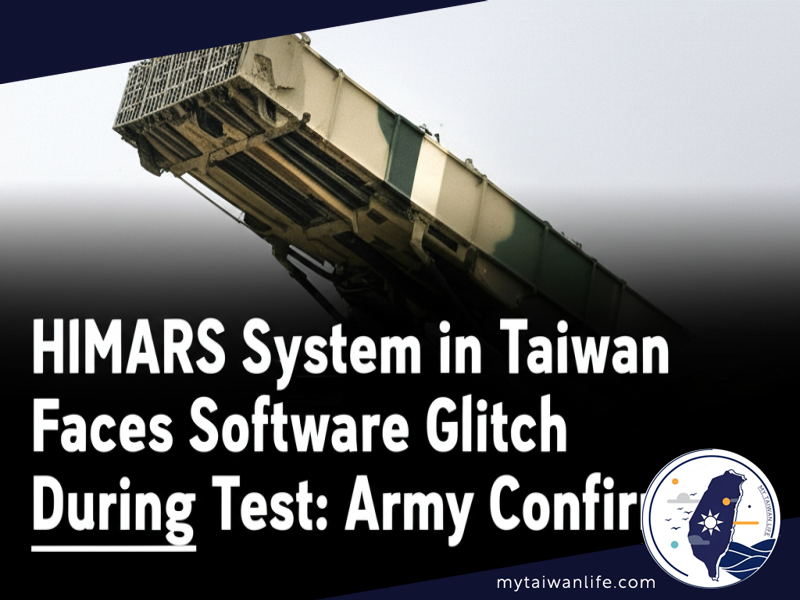HIMARS System in Taiwan Faces Software Glitch During Test: Army Confirms
Software Malfunction Identified as Cause of Signal Anomalies, Not External Interference, During Missile Test.

Taipei, Taiwan - The Taiwan Army has addressed concerns surrounding recent test firings of the U.S.-made M142 High Mobility Artillery Rocket System (HIMARS), clarifying the cause of observed "signal anomalies." According to a statement, the issues stemmed from a fire control computer malfunction rather than external interference.
The assessment was delivered by Army Chief of Staff Chen Chien-yi (陳建義) during a legislative hearing, responding to questions raised regarding the system's performance during the tests. Taiwan has acquired 29 HIMARS systems from the United States, with the initial delivery of 11 units occurring in October 2024.
The live-fire test, which took place at the Jiupeng Base in Pingtung County on May 12, involved the launch of 33 rockets. Chen reported that the signal anomalies occurred during the transmission of the firing command to the fire control computer, resulting in a self-diagnostic fault message.
Following standard operational procedures, the operator successfully resolved the issue, and the launch proceeded without further incident. The problem was promptly reported to the U.S. supplier after the test.
The supplier attributed the anomalies to a "sporadic software issue," identified through the computer's self-diagnostic check. This same software issue has been reported by the U.S. military and other user countries. Chen stated that a software update would be implemented soon, and the problem does not indicate a broader issue with the entire system.
Concerns have previously been raised regarding the potential vulnerability of the HIMARS system to GPS spoofing or interference, particularly from the Chinese military. The Washington Post reported in May 2024 that Russian electronic jamming systems rendered HIMARS "completely ineffective" in Ukraine, according to a confidential Ukrainian weapons assessment reported by The Hill. The report indicated that these jamming systems caused the missiles to miss their targets by a significant margin.
Chen assured that the recent test firings in Taiwan were conducted under stringent control protocols that considered the electromagnetic environment and potential signal interception. He emphasized that the airspace, sea area, and overall electromagnetic environment were meticulously assessed to ensure safe firing procedures. No significant environmental abnormalities were detected during the test.
Other Versions
El sistema HIMARS de Taiwán sufre un fallo de software durante las pruebas: Confirma el Ejército
Le système HIMARS de Taïwan connaît un problème de logiciel lors d'un test : L'armée confirme
Sistem HIMARS di Taiwan Menghadapi Kesalahan Perangkat Lunak Selama Pengujian: Angkatan Darat Mengonfirmasi
Il sistema HIMARS di Taiwan ha un problema di software durante i test: L'esercito conferma
台湾のHIMARSシステム、テスト中にソフトウェアの不具合に直面:陸軍が確認
대만의 HIMARS 시스템, 테스트 중 소프트웨어 결함 발생: 육군, 확인
Ang HIMARS System sa Taiwan ay Nakaranas ng Glitch sa Software Habang Nagsasagawa ng Pagsusuri: Kinumpirma ng Hukbo
Система HIMARS на Тайване столкнулась с программным сбоем во время испытаний: Армия подтверждает
ระบบ HIMARS ในไต้หวันประสบปัญหาซอฟต์แวร์ขัดข้องระหว่างการทดสอบ: กองทัพยืนยัน
Hệ thống HIMARS tại Đài Loan gặp trục trặc phần mềm trong thử nghiệm: Quân đội xác nhận

